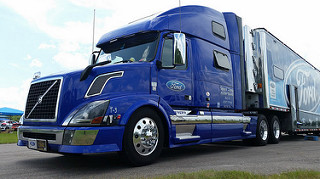States Put the Squeeze on Businesses in Attempt to Address Cash Flow Problems

States around the country are passing or attempting to pass legislation to try to fill state coffers, but many businesses feel that the result is simply going to be driving business away. The issue has become a three-way battle among legislators looking for new ways to bring in cash for projects such as road improvements, businesses seeking the best places to operate with low overhead costs, and labor unions who feel that companies nor the government are doing enough for their workers. Minnesota has passed a 6.5 percent sales tax on all warehouse services, yet farming and retail warehouses are excluded from this bill. According to the Minnesota Trucking Association, this places the majority tax burden on third-party carriers, which are already operating at a single-digit profit margin and can’t afford the increase. This could cause many companies to pull up anchors in Minnesota and move their warehouse facilities, as well as those jobs, out of the state into Iowa and other states with more favorable tax laws.
The state of Washington narrowly avoided the passing of a bill that would increase the gas tax by 10.5 percent. This $10 billion bill was proposed for transportation improvements, including much-needed road improvements. However, the tax would have targeted fleet operators in the state, already struggling amid a fickle economy and uncertain future.
Massachusetts has passed a 6.5 percent increase in taxes for “tech services.” The original bill pushed by Governor Deval Patrick was for $1 billion new tax dollars, but was considerably scaled down by the state House and Senate. Still, businesses predict that the tax increase is going to hurt all industries which are heavily dependant on computer software services, such as the health care industry and retail businesses.
Similar legislation, which many feel is unfairly targeting certain businesses to bail states out of their financial woes, has also been introduced and/or passes in Pennsylvania, Texas, and New Jersey. New Jersey’s new Truck Operator Independent Contractor Law reclassified most truckers from independent contractors to employees, muddying the waters further for carriers struggling to meet consumer demands in the area.







